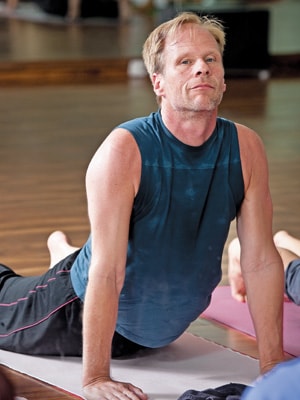
Philips' Wido Menhardt Wants to Change Global Control
Wido Menhardt, CEO of Philips Innovation Campus, says set-ups like his usually serve the global organisation, not the local business. He wants to change that
Name: Wido Menhardt, 51
Profile: CEO, Philips Innovation Campus
Experience: He has more than 25 years of experience in six countries across three continents with companies like Philips, Kodak, MiraMedica and ISG Technologies.
Key Challenge: To drive growth through innovation from India and in India.
Strategy: Develop technical depth and breadth in local staff, expand organisation beyond product engineering to local upstream product management.
I’ve lived in many countries and what I like most about India is the energy and cultural experience that this country offers. So I made a conscious decision to take up the position as CEO at Philips Innovation Campus (PIC) in May 2010.
A year later, I can say that I am making progress on some of the key objectives I had set out to achieve to bring PIC and the local [Indian] sales operations closer. My report card won’t necessarily show results this year but we are heading [towards a position] where the country organisation can gauge business opportunities, pick up a global product, and ask PIC to do some customisation [for India].
The biggest challenge I’ve had in [accelerating] this is history, legacy. Traditionally, such centres [PIC] are set up to serve the global organisation. They don’t talk to the local organisations. The former is driven by the headquarters; the latter, in any multinational, wants to move up the value chain by achieving cost arbitrage, developing partnerships and gaining product ownership. The country organisation is about sales; it focusses on high quality and low cost. Whereas in PIC, there’s no super sharp focus on cost reduction as we are already much lower [in] cost as compared to other locations.
So when we tell our colleagues in Gurgaon that we can develop that product for you, they say “Oh, you guys are too expensive”. One of my top five objectives is ‘Gurgaon Chalo’. Similarly, the sales department has listed ‘Leverage PIC’ as one of its top priorities. I am getting the engineering and sales folks to talk to each other.
The priority for the company is growth, and being in India and [India being an] emerging market, that growth will come. So what I’d instantly like to change is global control; turn it into local empowerment. But my biggest challenge with this is finding strong leaders who can hold their own in the global context.
I am pretty hands-off, I don’t micro-manage. I generally trust my managers. They are all very professional and capable. I don’t believe in layers of approval. If you need to do something, do it. If it’s outside of policy or outside of common sense, we’ll talk about it later. Very few decisions fundamentally put the company at risk, and for those we have safeguards.
I communicate with the employees a lot. It is more digital rather than physical mingling. I am super efficient with email and everyone gets a response within hours, wherever I am, as I travel a lot about a third of the time. I am very active on the internal social network where I post something every other day. It ranges from my own experiences and interesting meetings to the good things that someone in the organisation has done.
I don’t go down to the cafeteria for lunch. But during that time, from 12:30 pm to 1 pm, my door is always open for anyone with any problem to walk in. I sit down with my direct staff once a month for a non-transactional meeting, to talk about their goals, feedback, development plans, etc. I feel this provides a balance to the ‘one-liner’ emails that I often send. I hold ‘town hall’ meetings at least once every quarter where I talk about individual contributions, and I think people like this event.
In my earlier roles I’ve been involved with technology strategy but here I don’t get much time for that. My day starts at 8 a.m. and I get a lot done in the first hour. After that, my several 30-minute meetings begin. Though my day normally ends by 7 p.m., at least two to three times a week, I leave early to attend power yoga classes. I am religious about it.
I like surfing and skiing but they have proven a bit tough in India. Though I must say skiing in Gulmarg in Kashmir is the best, even better than in the Alps and the Rocky Mountains. We love hiking as a family and we did that in Ladakh last summer.
(As told to Seema Singh)
(This story appears in the 30 November, -0001 issue of Forbes India. To visit our Archives, click here.)





